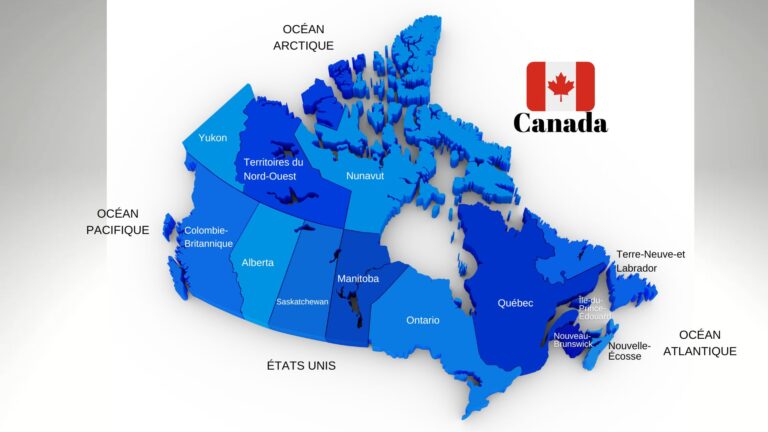The Canadian Experience Class: a fast track to permanent residency after your post-graduation work permit

Canada is a popular destination for international students seeking quality education and international experience. In addition to offering top-notch education, Canada also offers immigration opportunities for international graduates. The Canadian Experience Class (CEC) is a fast and efficient way to obtain permanent residency after obtaining a Post-Graduation Work Permit (PGWP). In this article, we'll introduce you to the benefits of the CEC, the eligibility criteria, and the steps involved in submitting an application.
I. What is the Canadian Experience Class?
The Canadian Experience Class (CEC) is an economic immigration program created in 2008 by the Canadian government to facilitate the transition of foreign skilled workers to permanent residency. The program is designed for foreign workers with Canadian work experience who wish to settle permanently in Canada.
II. Why choose CEC after a post-graduation work permit?
- A rapid process: CEC is known for its rapid assessment and processing. In general, applications are processed within 6 months, which is shorter than other immigration programs.
- No job offer required: Unlike other immigration programs, CEC does not require a job offer to qualify. This allows international graduates to apply without having to secure long-term employment.
- Access to the Express Entry system: Eligible CEC applicants can submit their applications via the Express Entry system, a selection system based on a points system. Applicants with the highest scores are invited to apply for permanent residency.
III. CEC eligibility criteria
To be eligible for the CEC, candidates must meet the following conditions:
- Canadian work experience: Applicants must have worked in Canada for at least one year full-time (or the equivalent part-time) in the three years preceding their application. Jobs must be classified in FEER 0, 1, 2, or 3 of the National Occupational Classification (NOC).
- Language skills: Candidates must demonstrate proficiency in one of Canada's two official languages (English or French) by passing a recognized language test, such as IELTS (International English Language Testing System) or TEF (Test d'évaluation de français).
- Legal status in Canada: Applicants must be legally present in Canada at the time of application. Foreign students and holders of a post-graduation work permit are generally eligible if they have complied with the conditions of their permit.
- Intention to reside outside Quebec: The CEC does not apply to candidates who wish to settle in Quebec. If you plan to reside in Quebec, you must follow the Quebec Experience Program (PEQ) or another Quebec-specific immigration program.
IV. How do I apply for permanent residence under the CEC?
- Create an Express Entry online profile: To submit a CEC application, candidates must first create an online profile in the Express Entry system. The profile must include information on work experience, language skills, education and other relevant factors.
- Receive an invitation to apply: Express Entry profile applicants are ranked according to their Global Ranking System (GRS) score. Applicants with the highest scores are invited to apply for permanent residency in regular Express Entry draws.
- Prepare and submit your application for permanent residence: Once you've received an invitation to apply, you have 60 days to submit a complete application for permanent residence online. Be sure to provide all required documents, such as proof of employment, language test results and diplomas.
- Wait for the decision: Applications for permanent residence under the CEC are generally processed within 6 months. If your application is approved, you will receive a Confirmation of Permanent Residence document and can begin the process of obtaining your Permanent Resident Card.
VI. Tips for a successful application
- Prepare well for language tests: Language skills are a crucial factor in a successful application. Invest time and effort in preparing for language tests, and aim for a high score to increase your chances of getting an invitation to apply.
- Organize and check your documents: Make sure you have all the necessary documents at hand before you start the application process. Check expiry dates and accuracy of information to avoid delays or refusals.
- Update your Express Entry profile: Regularly monitor your Express Entry profile and update it if your professional, academic or personal situation changes. This will help you maximize your CGS score and increase your chances of being invited to apply.
VII. Trades eligible for CEC
Eligible CEC occupations are classified according to the Canadian National Occupational Classification (NOC). Eligible jobs fall into the following categories:
- FEER 0: Management positions
- FEER 1: Professions generally requiring a university degree
- FEER 2: Occupations generally requiring: a college diploma, an apprenticeship of 2 years or more, or supervisory tasks
- FEER 3: Occupations generally requiring: a college diploma, an apprenticeship of less than 2 years, or on-the-job training of more than 6 months.
To check the eligibility of your occupation, consult the complete list of NOC codes on the Canadian government website.
VIII. Life, rights and duties of a permanent resident in Canada
As a permanent resident, you have access to various benefits and are subject to certain responsibilities:
Rights :
- Access to publicly-funded healthcare
- The right to live, work and study anywhere in Canada
- Protection under Canadian law and the Charter of Rights and Freedoms
- Possibility of sponsoring family members eligible for permanent residence
Homework :
- Respect Canadian laws and the rights of other citizens
- Paying taxes
- Maintain your permanent resident status by living in Canada for at least 730 days within a 5-year period.
It's important to note that permanent residents are not allowed to vote or stand for election, and can be deported from Canada if they commit a serious crime.
In conclusion, the Canadian Experience Class offers a fast and efficient route to permanent residency in Canada after a post-graduation work permit. By following the tips for a successful application and respecting the rights and duties of a permanent resident, you'll be able to settle in Canada and enjoy a prosperous life in this welcoming country.
The Canadian Experience Class is an attractive opportunity for international students and post-graduation work permit holders who wish to settle in Canada permanently. With its fast-track process and flexible eligibility criteria, the CEC allows skilled workers to benefit from a streamlined immigration process. If you meet the requirements and are ready to make a commitment to Canadian life, the CEC could be the ideal solution for realizing your immigration dreams.






